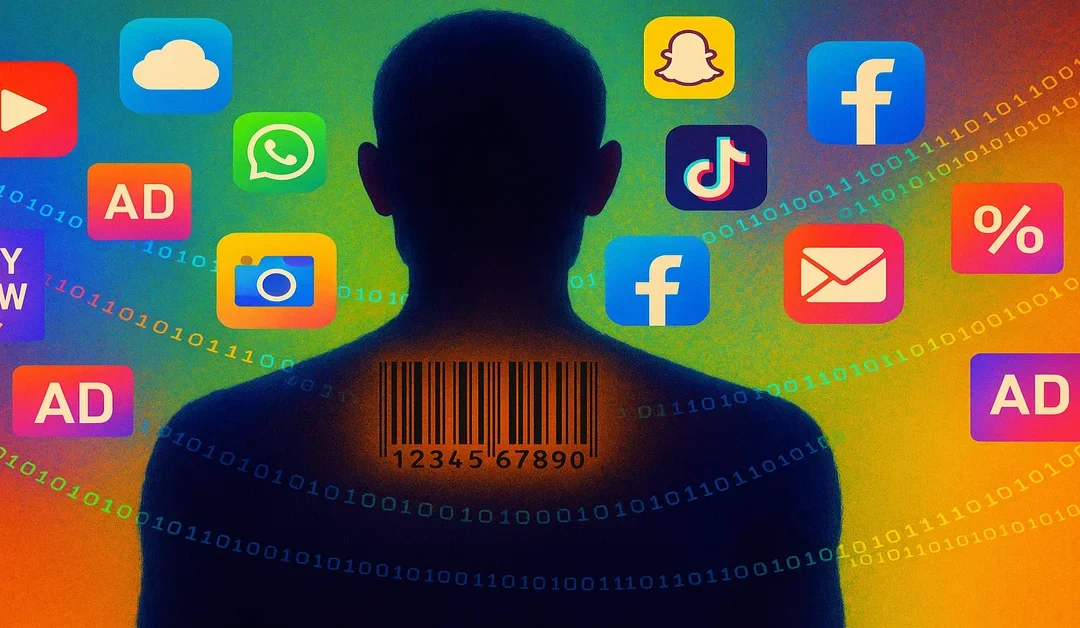You’re Not The User – You’re The Inventory
Let’s get brutally honest for a second:
If you’re not pulling out your wallet to pay for it, you’re not the customer—you’re the product being packaged and sold.
From your browser history to your bedtime scrolling habits, you’ve become the fuel of the world’s most profitable machine: the data economy. And the best part? They don’t even have to ask nicely. You willingly opt-in every time you click “I Agree” without reading a word.
The Illusion of Free: Why “No Cost” Really Means “All of You”
Think about the last free app you downloaded. Maybe it was that clever budgeting app, or the AI photo editor that made you look like a Renaissance painting.
Free, fun, convenient—right?
But nothing is ever truly free. These platforms are quietly collecting everything:
- Your real-time location
- Your browsing habits
- Your emotional responses (based on how long you pause or scroll)
- Your voice commands
- Even your typing speed and cadence
And they’re not just collecting it. They’re monetizing it. Your information is being bundled and sold to advertisers, political strategists, insurers, even data brokers you’ve never heard of. Ever wonder why after whispering “tooth whitening” near your phone, Instagram serves you five toothpaste ads and a “smile makeover” dentist ad within the hour?

You’re the Product—and They’re Not Even Subtle About It Anymore
Platforms like Facebook, TikTok, and Google didn’t build billion-dollar empires selling you a product. They sold you. Your behavior, your predictability, your eyeballs.
That personalized “For You” page? That’s not just content—it’s a feedback loop engineered to get you hooked.
They study what makes you stop scrolling…
They measure how your pupils react…
And then they feed you more of it until you’re a dopamine puppet.
Need proof? According to The Social Dilemma, internal research at Meta showed that harmful content often drives more engagement than positive content. And instead of fixing it, they leaned in. Because more clicks = more money. Morals? Meh.
The Rise of AI Tools: Smarter, Slicker, and Still Selling You
Let’s talk AI. Sure, tools like ChatGPT, image generators, and AI scheduling apps are revolutionary—but they’re also harvesting insights about how you think, type, create, and work.
Many of these tools don’t just assist you—they study you. Some store your inputs. Others track usage patterns and feed that data into training models. You’re not just using the tool—you’re unknowingly training it.
And no shade, but if you’re inputting sensitive documents, passwords, or financial info into that free productivity tool—maybe… stop?
The Real Cost: It’s Not Just About Privacy—It’s About Autonomy
Data is one thing. But the real product isn’t just your information—it’s your behavior.
Social platforms don’t just want to know what you like. They want to shape what you like. Algorithms manipulate:
- What news you see
- Which products you consider buying
- Who you trust
- What you believe
- How you feel about yourself
Ever scrolled through social media and suddenly felt bad about your life for no reason? That’s not random. That’s by design. The algorithm thrives on emotional volatility—it’s the best way to keep you engaged.

So… Can You Escape It? Not Entirely. But You Can Fight Smarter.
No, you don’t have to delete every app, start raising goats in the mountains, and communicate by smoke signal. But you can stop being a passive product and start reclaiming some power.
Practical Things You Can Do Right Now:
- Use privacy-first browsers like Brave or Firefox
- Replace Google Search with DuckDuckGo
- Use a VPN like ProtonVPN to mask your location
- Install tracking blockers like uBlock Origin or Privacy Badger
- Use Signal instead of WhatsApp (yes, Meta owns WhatsApp too)
- Dig into your app permissions and say “no” more often
You don’t have to go full Edward Snowden—but just knowing where your data is going makes a difference.
But Wait—How Did We Let It Get This Far?
The truth is, we traded privacy for convenience a long time ago. We got used to free maps, instant messages, next-day delivery, and AI-generated to-do lists. But the trade-off? Our attention spans, our autonomy, and sometimes, even our mental health.
And as tech keeps evolving—augmented reality, brain-computer interfaces, emotion-sensing apps—this problem is only going to get worse.
Unless we call it what it is: digital exploitation disguised as innovation.
Final Thought: If You’re the Product, Be an Expensive One
No, this article isn’t telling you to live in fear. It’s telling you to live awake. To stop blindly accepting convenience without questioning the cost.
Because if you’re going to be the product…
You might as well be the rare, premium, limited-edition one they can’t afford to ignore.
